第7章 CHAPTER IV(1)
July 9th.
By the time the ducks and geese are incarcerated for the night, the reasonable, sensible, practical-minded hens--especially those whose mentality is increased and whose virtue is heightened by the responsibilities of motherhood--have gone into their own particular rat-proof boxes, where they are waiting in a semi-somnolent state to have the wire doors closed, the bricks set against them, and the bits of sacking flung over the tops to keep out the draught. We have a great many young families, both ducklings and chicks, but we have no duck mothers at present. The variety of bird which Phoebe seems to have bred during the past year may be called the New Duck, with certain radical ideas about woman's sphere. What will happen to Thornycroft if we develop a New Hen and a New Cow, my imagination fails to conceive. There does not seem to be the slightest danger for the moment, however, and our hens lay and sit and sit and lay as if laying and sitting were the twin purposes of life.
The nature of the hen seems to broaden with the duties of maternity, but I think myself that we presume a little upon her amiability and natural motherliness. It is one thing to desire a family of one's own, to lay eggs with that idea in view, to sit upon them three long weeks and hatch out and bring up a nice brood of chicks. It must be quite another to have one's eggs abstracted day by day and eaten by a callous public, the nest filled with deceitful substitutes, and at the end of a dull and weary period of hatching to bring into the world another person's children-- children, too, of the wrong size, the wrong kind of bills and feet, and, still more subtle grievance, the wrong kind of instincts, leading them to a dangerous aquatic career, one which the mother may not enter to guide, guard, and teach; one on the brink of which she must ever stand, uttering dryshod warnings which are never heeded. They grow used to this strange order of things after a bit, it is true, and are less anxious and excited. When the duck- brood returns safely again and again from what the hen-mother thinks will prove a watery grave, she becomes accustomed to the situation, I suppose. I find that at night she stands by the pond for what she considers a decent, self-respecting length of time, calling the ducklings out of the water; then, if they refuse to come, the mother goes off to bed and leaves them to Providence, or Phoebe.
The brown hen that we have named Cornelia is the best mother, the one who waits longest and most patiently for the web-footed Gracchi to finish their swim.
When a chick is taken out of the incubytor (as Phoebe calls it) and refused by all the other hens, Cornelia generally accepts it, though she had twelve of her own when we began using her as an orphan asylum. "Wings are made to stretch," she seems to say cheerfully, and with a kind glance of her round eye she welcomes the wanderer and the outcast. She even tended for a time the offspring of an absent-minded, light-headed pheasant who flew over a four-foot wall and left her young behind her to starve; it was not a New Pheasant, either; for the most conservative and old- fashioned of her tribe occasionally commits domestic solecisms of this sort.
There is no telling when, where, or how the maternal instinct will assert itself. Among our Thornycroft cats is a certain Mrs.
Greyskin. She had not been seen for many days, and Mrs. Heaven concluded that she had hidden herself somewhere with a family of kittens; but as the supply of that article with us more than equals the demand, we had not searched for her with especial zeal.
The other day Mrs. Greyskin appeared at the dairy door, and when she had been fed Phoebe and I followed her stealthily, from a distance. She walked slowly about as if her mind were quite free from harassing care, and finally approached a deserted cow-house where there was a great mound of straw. At this moment she caught sight of us and turned in another direction to throw us off the scent. We persevered in our intention of going into her probable retreat, and were cautiously looking for some sign of life in the haymow, when we heard a soft cackle and a ruffling of plumage.